Blog Post
The Ludwigs of Trickle Creek Farm: A ‘Benedict Option’ in the Canadian Wilderness
By Jonathon Van Maren
Several years ago, a friend and I made the nine-hour drive north from Calgary through an Albertan landscape dotted with reed-filled ponds, muskeg, and miles of bright yellow canola fields. After a day on the road, we finally turned onto a jaw-rattling gravel path featuring a large, tan sign framed with stripped and varnished tree branches that informed us we had arrived. “Trickle Creek Community,” it read. “In Him we live and move and have our being, And as a plan for the fullness of time, all things in heaven and on earth shall be reconciled and united in Him.”
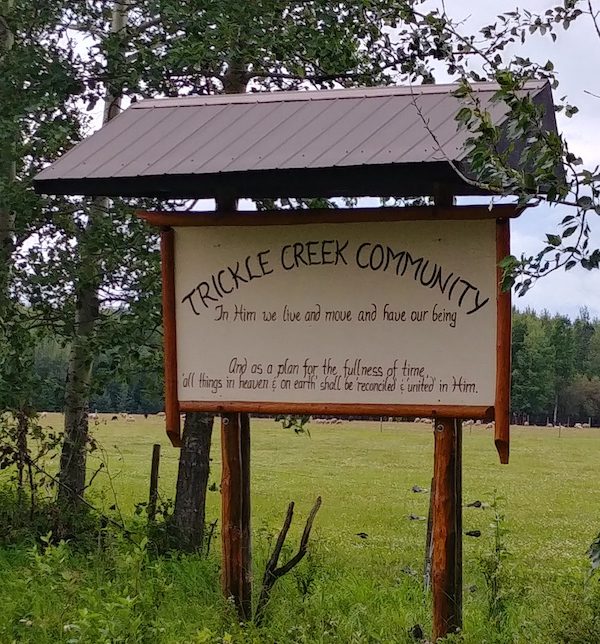
It is here, in Peace River Country, that one of the most fascinating Canadian stories of recent decades has unfolded—a story of Christian retreat, of a clash between a traditional lifestyle and the titans of government and industry, and even ecoterrorism. Events that unfolded here once captured the attention of the entire country.
Trickle Creek Farm was founded in 1985, when former Christian Reformed pastor Wiebo Ludwig, his wife Mamie, and their nine children arrived from Ontario to begin a new life after Wiebo decided it was time to retreat from society to escape a culture he believed was awash with poison. As journalist Chris Hedges would later put it: “Ludwig grasped the moral decadence of the consumer society, its unchecked hedonism, worship of money, and deadening cult of the self.” The eccentric Wiebo, encouraged in his plans to depart for the wilderness by the ecclesiastical troubles that seemed to follow him wherever he went, decided it was time to leave civilization with his clan: Harmony, Ben, Fritz, Bo, Josh, Mamie Jr., Salome, Charity, and Caleb.
The Ludwigs were joined by Richard and Lois Boonstra and their three daughters, Kara, Dania, and Renee (who would eventually marry three Ludwig sons and produce a population explosion). Ludwig’s biographer, Andrew Nikiforuk, wrote in Saboteurs: Wiebo Ludwig’s War Against Big Oil that for the first few years, the family set to work figuring out how to live with each other in the wilderness. It was a steep learning curve. In self-imposed isolation—Ludwig declined a proffered welcome party from nearby neighbors—the clan went to work creating an entirely self-sufficient society. The residents of Trickle Creek remember hard work, family time, and experiencing untamed nature for the first time.
In the early ‘90s, the situation began to sour. Ben, Wiebo’s red-bearded eldest (and in many ways his spitting image), told me that the trouble began just as his father decided it was time for their little community to begin reaching out and building connections with like-minded Christians. He began talking to Christian Reformed folks from nearby Neerlandia and other communities with similar theological backgrounds to discuss whether forms of collaboration could be found. “That’s just when the oil industry hit us, boom,” Ben told me as we walked around Trickle Creek Farm. “That took all our focus. That decision [to reconnect] was cut short by circumstance.”
That circumstance was the oil industry’s discovery that Trickle Creek farm was situated atop a major gas field, and the subsequent discovery by the Ludwigs that they only owned the top six inches of their property—the oil companies owned the resource rights to everything else. Oil wells, flaring, and sour gas leaks followed. Livestock died and miscarried. Eventually, the Ludwig women began to miscarry, too—there were five miscarriages and stillbirths in all. Tensions flared, culminating in standoffs with the oil companies who were, Ludwig wrote angrily, causing the deaths of his children, poisoning his farm, and violating the Lord’s Day by working on Sunday to boot.
What precisely happened next is still a matter of educated speculation. After the Ludwigs exhausted their legal options—lobbying politicians, taking the oil industry to court, and even attempting to move the entire clan to Costa Rica and getting turned back in Guatemala—a covert war against the oil industry began. As filmmaker David York portrays powerfully in his brilliant 2011 documentary, Wiebo’s War, the family fought back against an industry they perceived as threatening both the lives of their children and the health of their community.
Cement was poured down oil well shafts. Other sites were vandalized, and some were blown up. Wiebo Ludwig swiftly transformed from an obscure community leader deep in the Albertan forests to someone viewed as a dangerous ecoterrorist by some and a folk hero by others. As York explained it: “Wiebo felt that our society was in a spiritual crisis, rather than an environmental crisis. He felt that our addiction to fossil fuels, rampant consumerism and materialism, addictions, and breakdown of family units were all symptoms of a society that had lost its root connection to God.”
After a relentless, years-long pursuit, the police finally managed to put the wily Frisian in prison. Wiebo was convicted of five charges related to bombings and other forms of vandalism against oil and gas installations in 2000. By then, tensions with the surrounding community were at a fever pitch—a teenager had died of a gunshot wound on the Ludwig property after joyriding across the lawn in a pickup truck in the middle of the night, narrowly missing tents filled with sleeping women and children. The Ludwig minivan was blown up during a visit to town. No charges were filed in either instance. Wiebo was sentenced to 28 months in prison and served 18. He used his sentence to begin the translation of a Dutch treatise on angels.
Wiebo denied all guilt, and the Ludwigs are still deliberately vague when asked about what happened. “A greedy industry caused real harm and posed real danger to people just trying to live their lives, and so there was pushback,” Ben told me over a cup of coffee. “The industry still pushes closer to our property, so every once in a while, we have to drop by and remind them of our history.”
The specific details of that history remain unknown. Wiebo once suggested that he was planning to write a book for posthumous publication, but he died of esophageal cancer on April 9, 2012, at the age of 70, and no memoir has been forthcoming. In one notable instance, the police asked if they could come to Trickle Creek, open Wiebo’s coffin (which he had built himself) and fingerprint him one last time. The family refused, suspecting that the police just wanted to confirm that Wiebo was actually dead.
That story has already been told by journalists like Andrew Nikiforuk and David York. The story I am interested in, however, is the story of a religious community striving for self-sufficiency, reducing reliance on the government, and building a community that resembles the sort of Christian enclave that traditionalist writer Rod Dreher in his 2017 book, The Benedict Option: A Strategy for Christians in a Post-Christian Nation. The residents of Trickle Creek are not interested in interfering in the broader culture, and they chose their remote location so that the broader culture—and the government—would leave them alone.
Trickle Creek was buzzing with activity when we arrived, although Ben quickly pointed out that things often slow to a glacial pace during the long northern winters. Because the growing season is so short and the inhabitants of Trickle Creek are so focused on self-sufficiency, the summer months are essential. As Ben walked us around the farm, we were constantly bumping into one or more of Wiebo and Mamie’s fifty grandchildren (at the time of our visit, there were twenty-five boys and twenty-five girls, ranging in age from infant to 29). There are 960 acres, and 650 are usable.


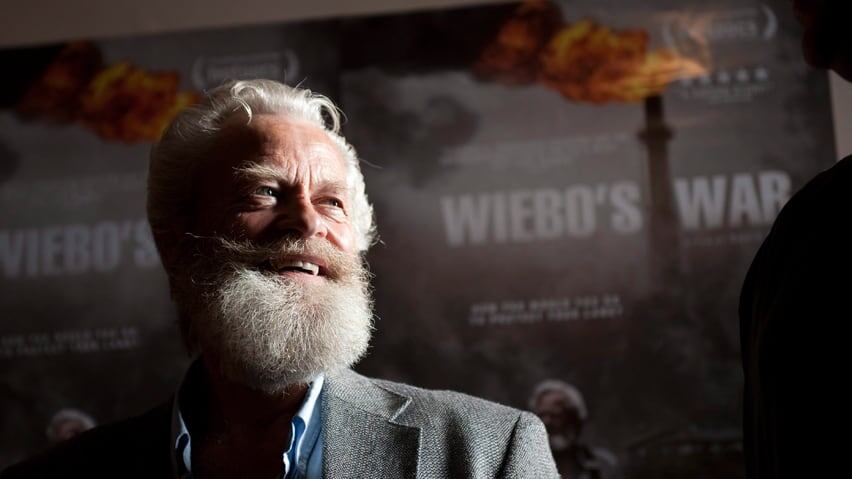
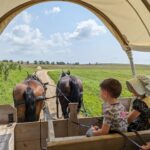


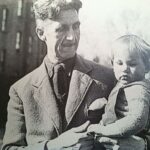

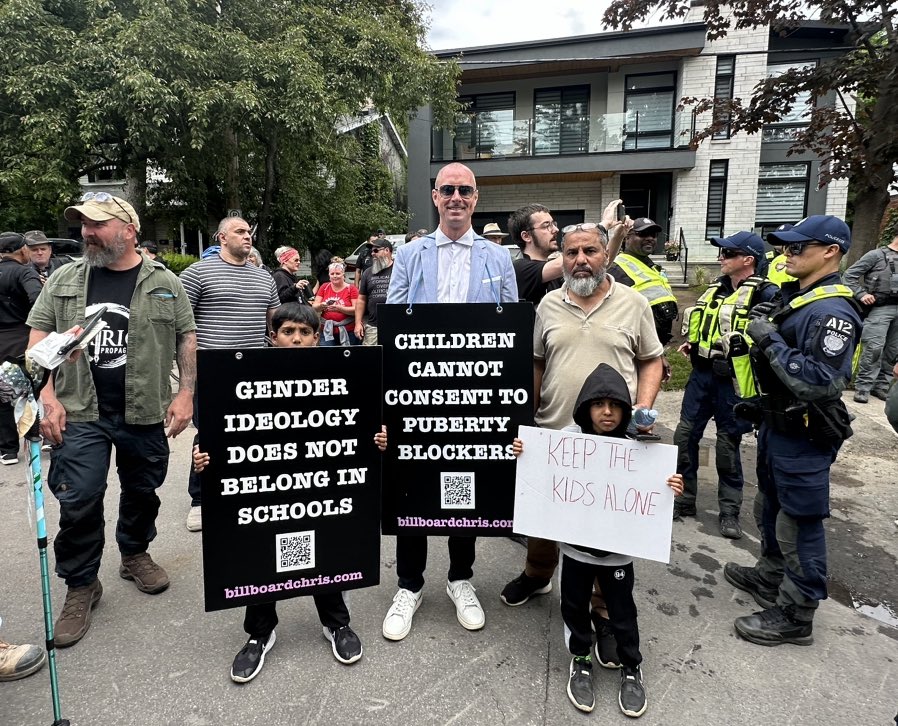
Interesting read. Wiebo was in a couple of classes that I was taking in my first year of college (now university).